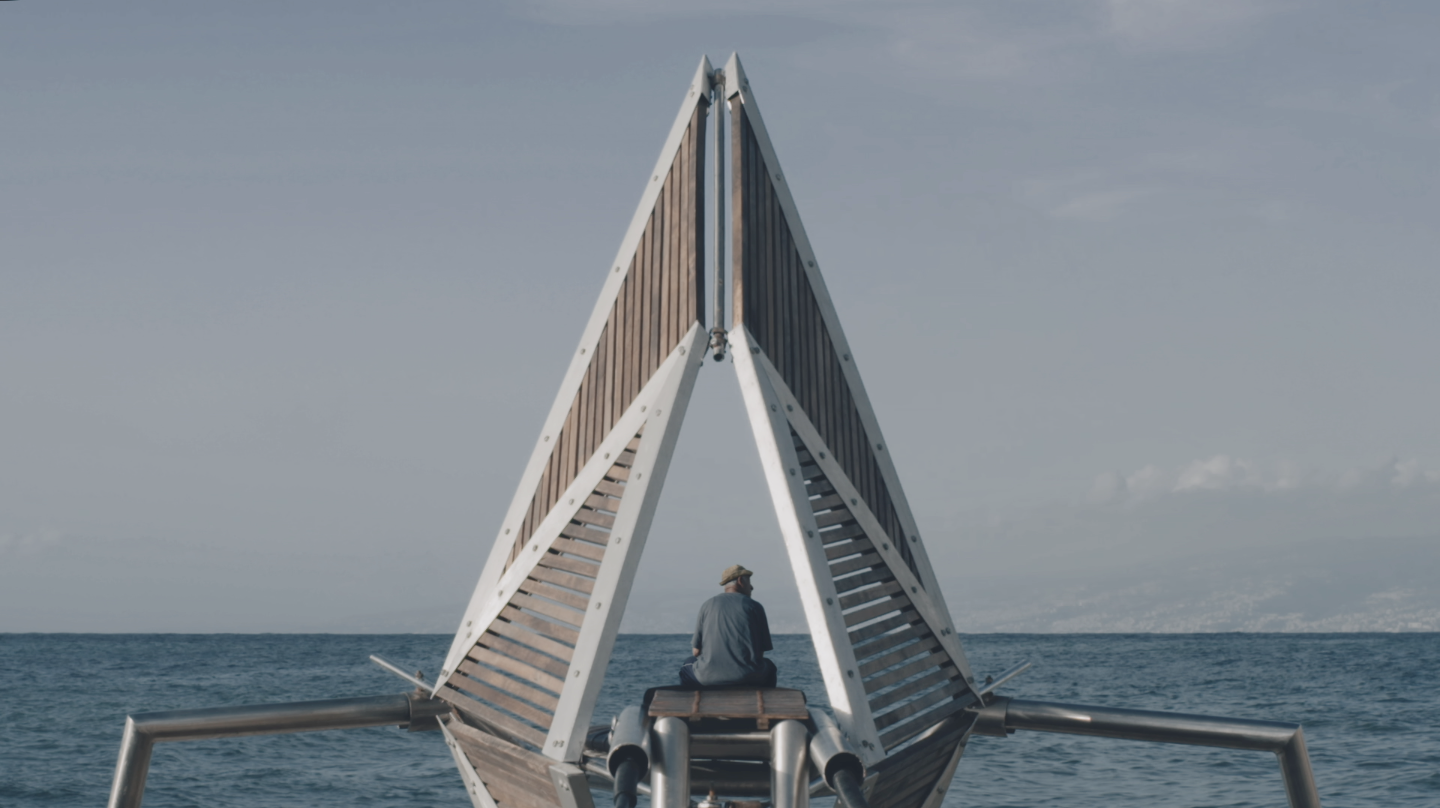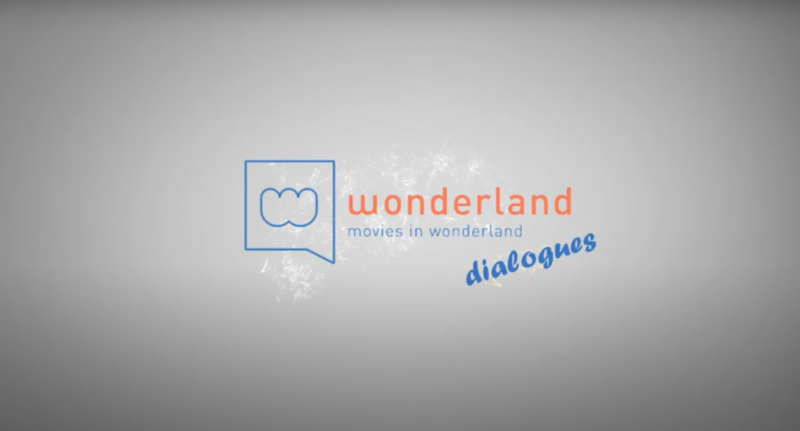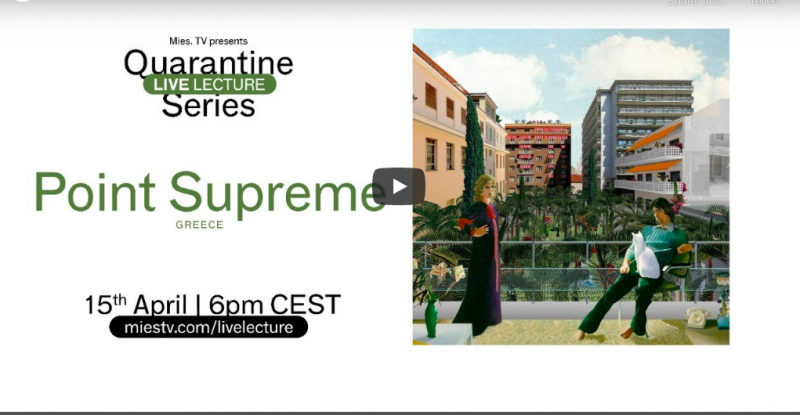Posted on: 11th June 2017
Architektur.Film.Sommer 2017 – Battle for the City
Cinema evenings in the Az W courtyard
in cooperation with Architekturzentrum Wien (Az W) and with the MuseumsQuartier Wien
Supported by: Bundeskanzleramt Österreich / Sektion II Kunst und Kultur and Kammer der ZiviltechnikerInnen | ArchitektInnen und IngenieurInnen Wien, Niederösterreich und Burgenland
The Workers Leave the City
What effect does the disappearance of the working class from the city have on the way people live together or on holiday habits? Urban expansion and the increase in urban density often force established trades to move out, on the other hand new functions bring new activities into the city.
The Flying Gardeners
IT 2015, 9:00 min, no dialogue, Director: Giacomo Boeri & Matteo Grimaldi
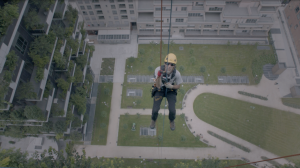
Gilberto, Massimo and Giovanni fly around the Vertical Forest every four months. Hanging by a rope from the edge of the roof, they descend by jumping among the balconies. Botanists and climbers, only they have the consciousness of the natural richness that the Forest hosts in the Milano sky.
STALINGRAD – Geschichten einer Innsbrucker Siedlung
AT 2015, 58:09 min, GOV, Director.: Melanie Hollaus
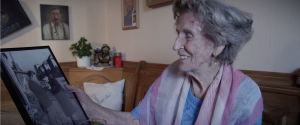
From the late 1920s onwards, to the south of the Conrad Barracks in Innsbruck a housing estate was developed in several stages, which has been known unofficially as “Stalingrad” since the 2nd World War. When the National Socialists came to power the last barracks in this area were demolished and the remaining apartments were erected. This was an area of experiment for social housing where new house typologies and new materials were tested. In contrast to “better” social housing the housing blocks were intended for poorer sectors of the population, people who had lived in huts and those who had returned from the war. Outwardly the reputation of this estate was never particularly good, yet internally the level of neighbourliness was high and people stuck closely together. The people of Stalingrad generally felt very well in their homes and to the present day they are extremely proud of the estate.
“The Show Must Go On”
EE/AT 2016, 6:00 min, no dialogue, Director: Laurien Bachmann & David Wittinghofer
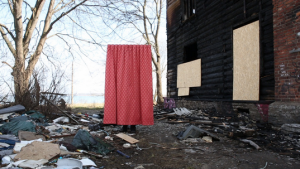
Behind a curtain an actor waits for his big moment which, however ,is not going to happen, in the meantime the space around him develops gradually into a stage, in a certain sense becoming the main protagonist: a personal homage to Tallinn’s historical working class housing estate Kopli liinid shortly before it disappeared.
IRIS
DE/LB 2016, 7:20 min, OwGS, Director: Manuel Rees & Lea Najjar
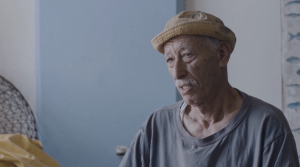
When Adnan was a small boy his father taught him how to fish off the coast of Beirut. Thy lived in a house and could look across green terraced gardens and trees to the sea. Today the gardens have vanished, Adnan has lost his house and a grey jungle of high-rise buildings blocks the access to the sea. Through the project IRIs, initiated by the Lebanese architect Karim Najjar, the fishers are trying to recover their access to the coast. IRIS offers them a platform, serves as a fishers’ pier and, through the power of the waves, supply the fishers’ houses with electricity. In this way the uprooted fishers, after having been swallowed up by the city, are gradually recovering the basis for their livelihood.
19:30
AT 2016, 14:25 min, GOV, Director: Simona Reisch
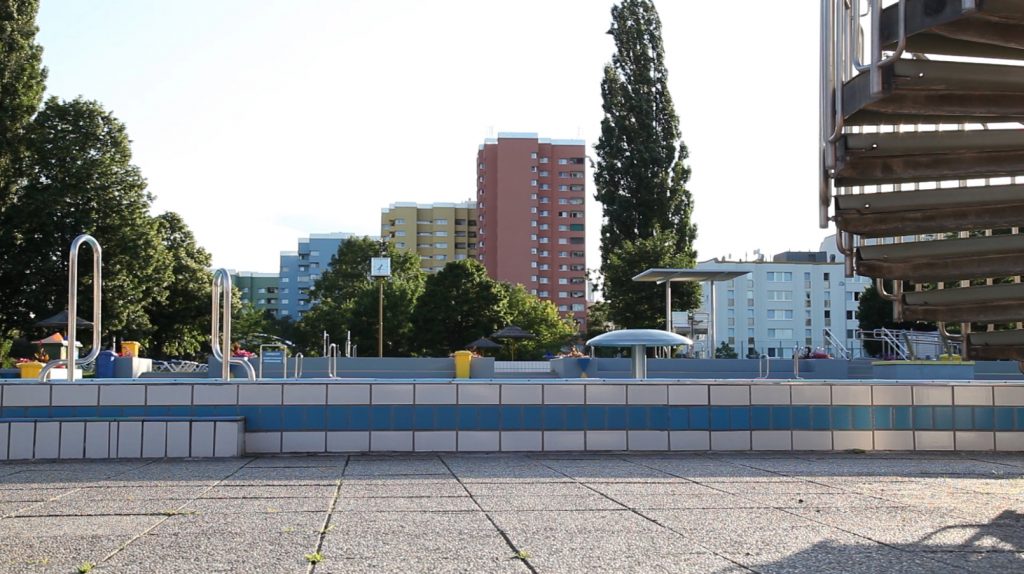
In a mix of idyll and pedantic punctuality: Vienna’s municipal outdoor swimming pools close at 7:30 pm. At some places this is announced in an informal, spontaneous, partly also friendly way. In other places the announcement of the impending end of a summer day at the pool can recall times of war and emergency situations. Accompanied by associations with bomb attacks you quickly finish eating your ice-pop or dry yourself off. The visual language is recorded photographically and shows the architecture of bathing facilities from the previous century in Vienna. The excerpts focus not so much on the accidental protagonists and more on the spatial and architectural elements that surround the end of a summer day at the swimming pool.
Slumbering Concrete – extended teaser
HR 2016, 15:19 min, without dialogue, Director: Saša Ban
“Slumbering Concrete” is the title of a series of documentary films about the progressive ambitions and the controversial fate of modernist architecture in the region of former Yugoslavia. The theme of the first series is Croatian holiday architecture which – freed from the constraints of other contemporary projects – from the mid 1960s to the beginning of the 1970s represented an important field of architectural research. It still shows traces of a remarkable architectural culture, even though today many of these fascinating buildings stand empty and are decaying – disquieting evidence of loss of cultural memory and poorly managed post-socialist privatisation processes. “Slumbering Concrete – Extended Teaser” presents all the architectural protagonists of the series in their present-day condition.

